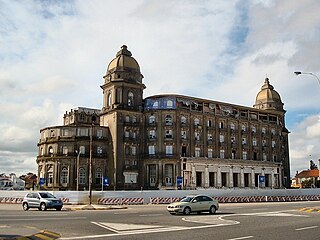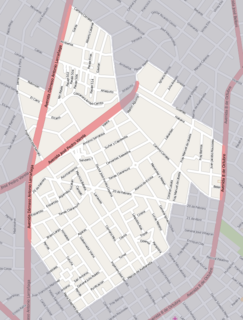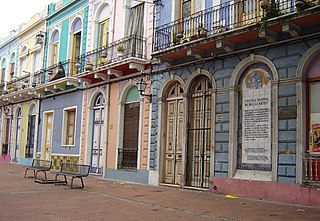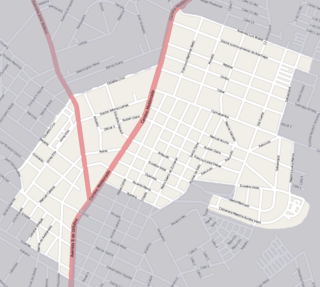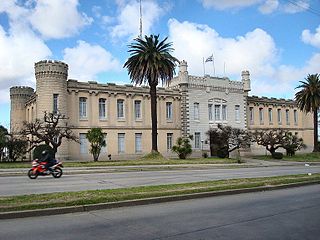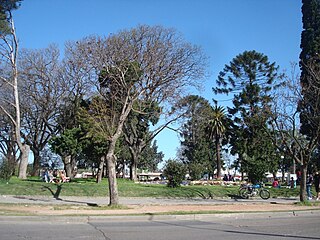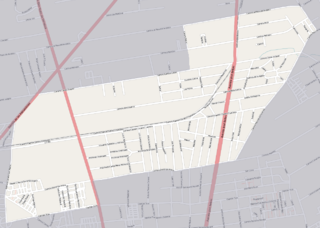| Villa García–Manga Rural | |
|---|---|
| Barrio | |
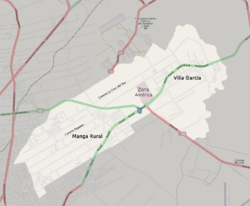 Street map of Villa García–Manga Rural | |
 Location of Villa García–Manga Rural in Montevideo | |
| Coordinates: 34°47′S56°03′W / 34.783°S 56.050°W Coordinates: 34°47′S56°03′W / 34.783°S 56.050°W | |
| Country | |
| Department | Montevideo Department |
| City | Montevideo |
Villa García–Manga Rural is a barrio (neighbourhood or district) of Montevideo, Uruguay.
Barrio is a Spanish word meaning a quarter or neighbourhood. In Spain, several Latin American countries and the Philippines, the term is also used officially to denote a division of a municipality.

Montevideo is the capital and largest city of Uruguay. According to the 2011 census, the city proper has a population of 1,319,108 in an area of 201 square kilometres (78 sq mi). The southernmost capital city in the Americas, Montevideo is situated on the southern coast of the country, on the northeastern bank of the Río de la Plata.

Uruguay, officially the Oriental Republic of Uruguay, is a country in the southeastern region of South America. It borders Argentina to its west and Brazil to its north and east, with the Río de la Plata to the south and the Atlantic Ocean to the southeast. Uruguay is home to an estimated 3.44 million people, of whom 1.8 million live in the metropolitan area of its capital and largest city, Montevideo. With an area of approximately 176,000 square kilometres (68,000 sq mi), Uruguay is geographically the second-smallest nation in South America, after Suriname.
Contents
Formerly there was an important agricultural school here, established by Juan D. Jackson. Nowadays it has been transformed in the Jacksonville development. [1]
Juan Dámaso Jackson Errazquin was a Uruguayan businessman and philanthropist.

